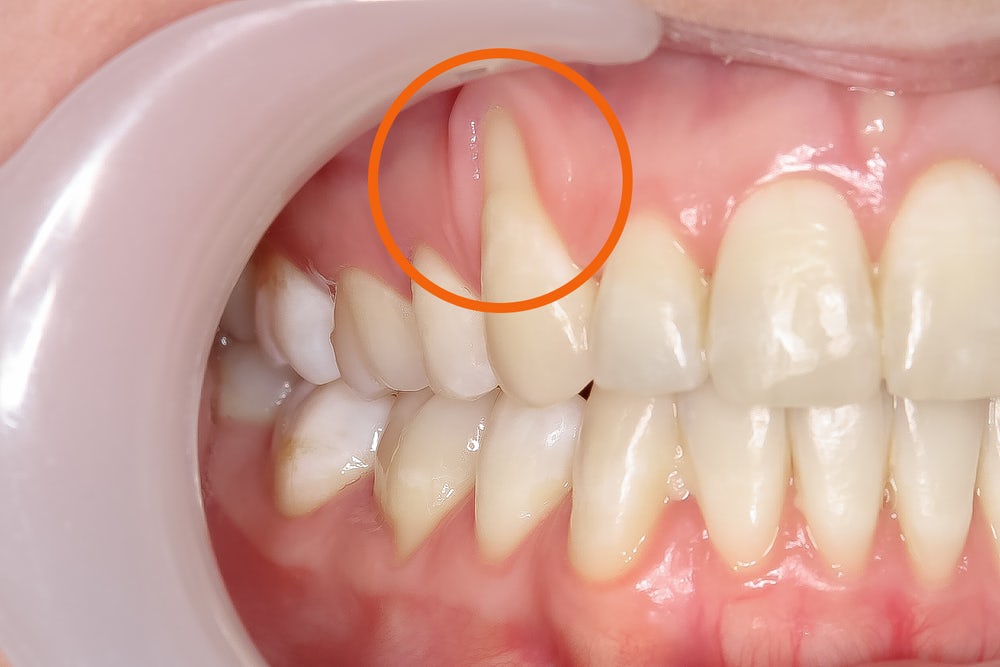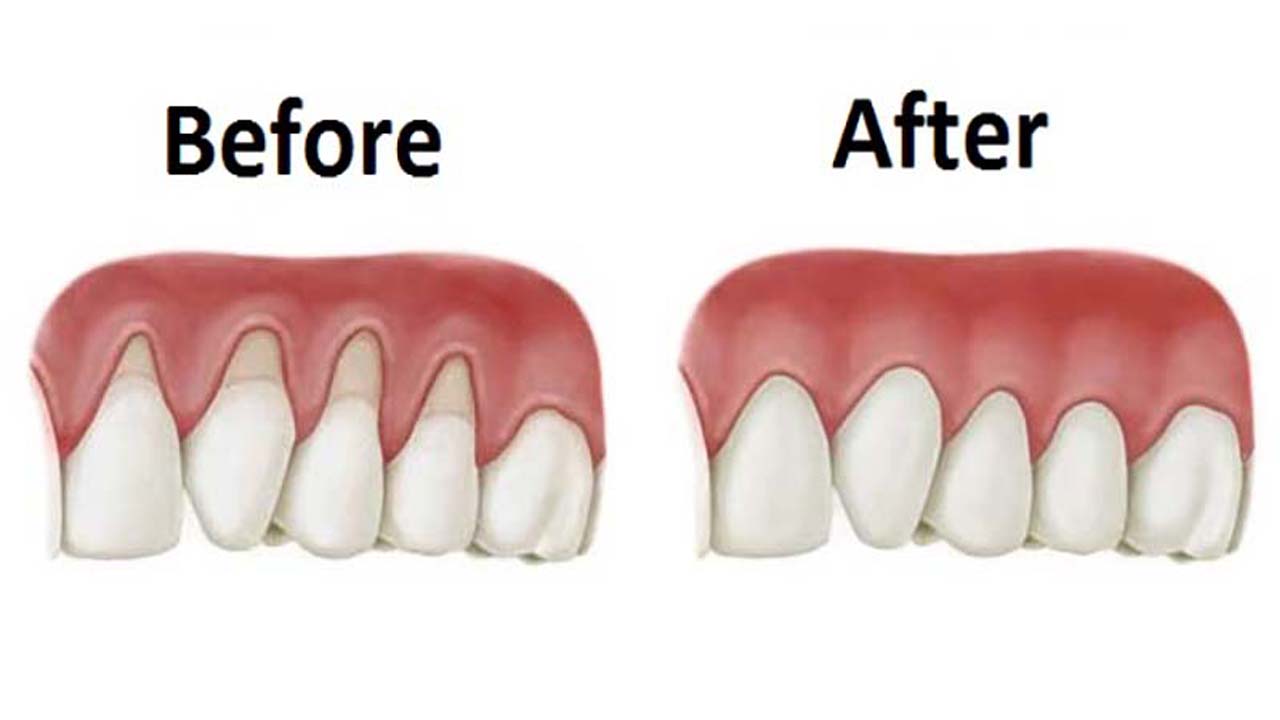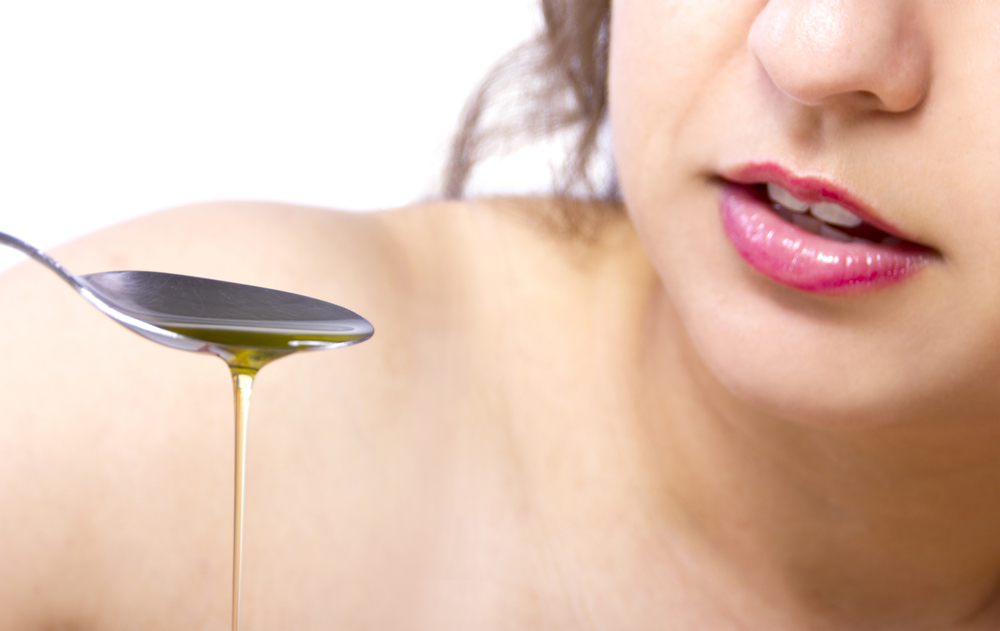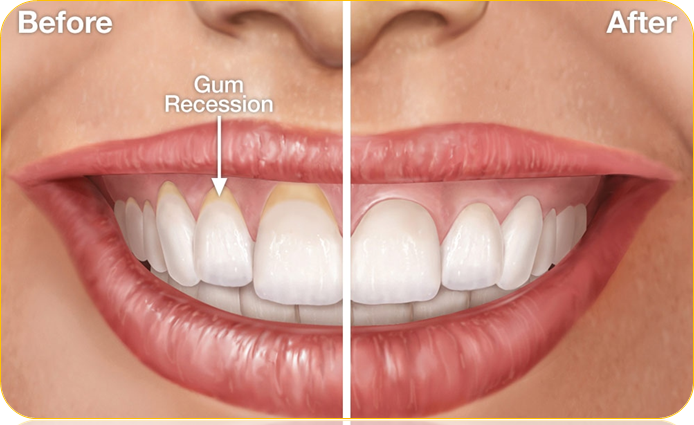Alternative Treatment For Receding Gums

If you're looking for a receding gums alternative treatment, you've come to the right place. This article will answer the questions "What are receding gums?" and "Can they grow back?". Next, we'll cover some natural remedies for regrowing gums. Finally, we'll discuss a procedure known as Pinhole Surgical Technique. This procedure doesn't involve any cutting or sutures and instead involves making a small pinhole in the gum tissue and gently gliding it over the exposed root.
What Are Receding Gums?
If you've noticed your gums are receding, you're probably curious about their meaning. Receding gums may not cause any harm to you if you treat them early, but ignoring them can increase your risk of tooth decay, bleeding gums, and even underlying diseases.
Here are some symptoms that may indicate your gums are receding:
A disease often causes this type of gingivitis in the gums called periodontitis. This gum disease results in receding gums because of the bacteria that form plaque. This bacteria builds up in pockets in the gum tissue and causes inflammation and erosion. It can cause bad breath and bleeding gums. It cannot be very comfortable to have your gums recede, but thankfully, treatment for this condition is relatively straightforward.
Some simple steps to prevent receding gums include brushing the teeth every day and visiting a dentist every six months. In cases where gum recession isn't too severe, your dentist may prescribe antibiotics. The dentist will remove bacteria during a deep cleaning and smooth out the exposed root area. Scaling and root planing is the name for this procedure. If you have severely receding gums, you may need dental surgery.

Can Receding Gums Grow Back?
Despite what you might have heard, receding gums do not grow back. It is because gum tissue cells die, and there are fewer new ones to replace them. It leads to receding gums. A dentist can help you reverse the process by performing a treatment. Treatments can include dental surgery, medication, or scaling. You may also be interested in alternative methods, such as gum rejuvenation surgery.
A non-surgical procedure called scaling is commonly performed to repair a recession gum. This procedure removes plaque and tartar below the gum line. It also smoothes the root surface of your tooth, allowing it to reattach to your teeth. If you have mild receding gums, you may not require treatment. However, if your gums are severe, you may wish to consider surgery.
You might be wondering if your receding gums can be reversed in some circumstances. While it's true that natural remedies can help you with your oral health, they haven't been proven to regrow gum tissue. While natural remedies may be helpful, no treatment effectively makes receding gums grow back. While you cannot cure receding gums, you can prevent them from receding even further. You can also try gum grafting procedures, which can greatly improve the appearance of receding gums. Click Here To Know About Dental Pro 7 Where to Buy?
Natural Remedies For Regrow Gums
Dehydration is the most common reason for receding gums. Adding water to your daily routine can help you keep your gums hydrated and prevent further gum disease. You can also apply turmeric juice to the gums or use turmeric gel. Sesame oil also has medicinal benefits and can be applied to gums. Sesame oil is a natural anti-inflammatory that can reduce plaque deposits in your mouth.
Essential oils have antimicrobial and antiviral properties and may help to fight gingivitis. Peppermint oil is a natural antibacterial and may help to prevent disease-causing bacteria from forming in gums. Clove oil is also an effective disinfectant. You can mix essential oils and apply them to your gums to get the desired results. It's a great home remedy for gum disease.
Oil pulling has been proven effective for reducing plaque and preventing gum disease. Gargling with green tea has antibacterial properties, and oil pulling has been shown to improve gum health. Topical aloe vera can help improve gum health. These remedies aren't the only effective remedies for receding gums, but they can provide relief from your symptoms. Just be sure to use caution if you're allergic to any ingredients.

Gargle With Hydrogen Peroxide
A simple home remedy for receding gums is a mouthwash containing three percent hydrogen peroxide in equal parts of water. Gargling with the solution can help reduce inflammation and soothe sore gum tissue. It can also kill germs, which contribute to gum disease. Mix a slight amount of hydrogen peroxide in a cup of water and gargle for about 20 seconds. Rinse your mouth thoroughly with the solution and follow it up with water.
A solution that contains 35 percent hydrogen peroxide is too strong for oral use and may cause gastrointestinal issues. You may also face irritation in your eyes and lungs if you gargle with too much hydrogen peroxide. Ensure to read the label and take extra precautions.
Oil Pulling For Your Dental Health
Some people swear by the benefits of oil pulling as an alternative treatment for receding teeth. It is a simple and easy procedure that involves swishing a tablespoon of oil in your mouth for 15 minutes. You then rinse with warm water. Although oil pulling has only recently gained popularity, it has been around for decades. It predates the invention of dental floss, toothpaste, and mouthwash.
Coconut oil for oil pulling can naturally improve your oral health. It has properties that can remove bacteria and break down plaque buildup, the culprit for receding gum lines and gingivitis. Coconut oil can also soothe inflamed gums and moisturise them. You should give oil pulling a chance; make sure you pair it with a trip to the dentist. They can offer additional treatments and immediate relief.
There are many essential oils you use to improve your oral health. Peppermint oil is antibacterial and stimulates the production of new gum tissue. Clove oil has disinfectant properties and can fight periodontal disease. If you're interested in using essential oils for gum disease, try a few and see how they work. If you find one or two essential oils work well, consider a blend of several to find the best solution for your problem.

Use Therapeutic Mouthwash As A Treatment
You may experience pain along the gum line if your gums are receding. In addition, your teeth may appear longer, and your gums may be swollen. In addition, your gums may appear sore and bleed. The best alternative treatment for receding gums is a professional dental checkup and the use of a therapeutic mouthwash.
Insufficient oral hygiene can lead to tartar and plaque buildup. These bacteria can cause decay and gingivitis. Furthermore, improper brushing can result in gum recession due to aggressive brushing. Recessive gums are often the result of gum disease, which can affect the supporting bone and tissue of the teeth. Fortunately, therapeutic mouthwash is an alternative treatment for receding gums.
How To Treat And Prevent Gum Recession?
A good way to prevent receding gums is to practice good oral hygiene. Brush your teeth at least two times a day and floss once. Check a dentist twice a year to ensure good oral health. Brush gently, and don't use abrasive brushes. Brushing too hard will damage your gums.
Recessive gums are often caused by poor oral hygiene habits, such as smoking and grinding your teeth. Gum diseases, such as periodontitis, can also cause them. When these conditions develop, they create pockets that can become infected. The infection can cause damage to the bone and tissue that hold your teeth in place.
Over 30 percent of people have a genetic predisposition to gum diseases. Nevertheless, anyone can develop receding gums. If you suffer from receding gums, it's important to seek professional dental care as early detection and treatment can control further damage to your teeth. And remember that the sooner you begin addressing the problem, the better.

Conclusion
Recessive gums expose more of the tooth's surface than normal. A normal healthy mouth has half of a tooth's visible surface. The other half is covered by gum tissue and jawbone. If you're concerned about your receding gums, it is best to get checked by a dentist as soon as possible. Even if your dentist recommends surgery, you should know that this treatment involves surgery.
Although gum recession is common among people, you can reduce the risk of developing the condition by making lifestyle changes and addressing other underlying health issues. One of the easiest changes you can make is to quit smoking, which has been associated with the gum recession. Other factors you should consider are oral health habits such as tobacco use. Early detection of receding gums is vital to repairing the damage. If the condition is unbearable, you should seek treatment right away.